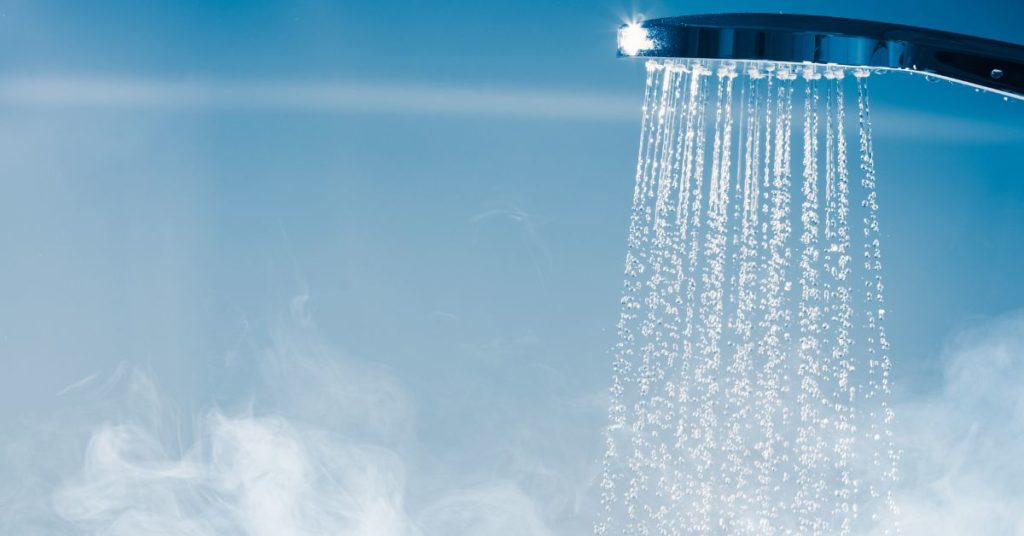
When was the last time you thought about the convenience of having hot water on demand? It’s a modern-day luxury that most people don’t give a second thought to – that is, until it’s either not there, or it’s all of a sudden too hot.
If the hot water coming out of your tap is hotter than it used to be or if it seems to randomly get hotter than expected, it can be a serious danger to you and your family. Keep reading to learn more about ideal water temperature and what to do if it all of a sudden is too hot.
Hot water is pretty much a necessity nowadays. If your hot water heater happens to go out, chances are, you’ll be trying to get someone to come over to fix it as soon as possible. Hot water is essential for health and cleanliness and it’s also something that most people don’t want to do without. After all, there’s nothing better than a nice, hot shower on a cold, winter morning.
But what is the right hot water temperature? Most water heaters are set at 140 degrees Fahrenheit. At this temperature, you can clean your dirty dishes or take a comfortable shower without the risk of scalding.
Keep in mind that 140 is the default setting on most water heaters, but that doesn’t mean you can’t change it. Turning down your water temperature can make your hot water more comfortable to the touch, but it can also save you some money on your gas or electric bill. Just make sure that you don’t turn it down too much. Setting your hot water heater to a setting below 120 degrees Fahrenheit can be dangerous at it makes it easier for harmful bacteria to grow.
If you enjoy taking steaming, hot showers, you might be reluctant to turn down your water temperature, but there are several reasons why you shouldn’t set it above 140 degrees. First, you increase your risk of getting scalded. Even if you can tolerate higher temperatures, setting your water heater too high can put children and other members of your household at risk. It can also take a toll on your hair and skin, causing them to dry out and become itchy.
Keeping a higher temperature can also cost you money – both in the form of higher energy bills and greater wear and tear on your hot water heater. That’s because higher temperatures accelerate the accumulation of mineral sediment from the water, thereby causing your heater tank to corrode.
For your health and safety, and to prolong the life of your water heater and plumbing, it’s a good idea to keep your temperature between 120 and 140 degrees Fahrenheit at all times.
Has your water recently become too hot to the touch? If so, you might wonder what would cause this to happen so you can get it back to the comfortable temperature it once was. Here are a few of the most common reasons why your hot water is all of a sudden hotter than it used to be.
Many homeowners have never even checked the temperature setting on their water heater. If you’ve recently moved into a new home, or you’ve been dealing with excessively hot water in your current home, you should first check your water heater’s thermostat setting.
Perhaps someone in your household recently adjusted it and mistakenly set it too high. Or, maybe it got bumped and now it’s putting out water that’s much hotter than what you want it to be. Whatever the case, to determine why your water is so hot, start by checking the simple things such as the thermostat setting. If it’s 140 or above, that could be your problem. Simply turn it down (just make sure you don’t go below 120).
Like all electrical parts, thermostats can malfunction or break. If the thermostat on your water heater isn’t working as it should, it can cause extreme temperature fluctuations including scalding hot water. The remedy to this problem could be as simple as hitting the reset button on your thermostat, or you may need to have it replaced altogether. If you suspect that you need a new thermostat, you’ll need to contact a plumber to ensure that it’s done safely and correctly.
Pennsylvania is known for having hard water. That means the water has a high level of dissolved minerals including iron, magnesium, and calcium. When hard water is pumped through a hot water heater, the minerals can settle in the bottom of the tank. Over time, mineral buildup can interfere with the heating element, causing your water heater to overheat. The best way to avoid this from happening is to have your water heater serviced at least once a year.
Most hot water heaters last about 8-12 years. Keeping up with regular maintenance will extend the life of your water heater, keep it running as efficiently as possible, while ensuring your water remains at a comfortable temperature. At WM Buffington, we provide water heater maintenance to homes in Highspire, Harrisburg, Middletown, and much of Dauphin County. Contact us today to schedule an appointment!